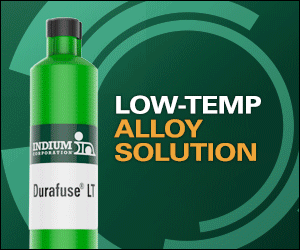Manufacturing in Mexico Under the USMCA

The USMCA has been created and approved by all North American leaders to benefit each economy, further protect intellectual property, and create greater opportunities for employment and commerce.
One prime example of the changes made to the USMCA is the rule of origin provisions. This directly affects where parts come from, particularly in the automotive industry. The threshold for vehicle content has been increased to 75 percent without incurring tariffs to ensure more automobiles will be made largely in North America.
Another major inclusion in the new trade agreement is the labor value content (LVC) rule. The general concept is that 40-45 percent of the components that make up an automobile must be made by laborers earning at least $16 USD per hour. This is in addition to the labor reform Mexico has put into place which allows for collective bargaining and registering union and impartial labor courts for its workforce.
Since the USMCA has only officially been in effect since July 1, 2020, time will tell how countries will benefit and what challenges they may face. To guide U.S. manufacturers through these changes in a successful way, it’s best to work with a Mexico shelter company to expedite operational setup time and streamline the manufacturing process in compliance with the USMCA.
Adding Shelter Services in Mexico to Your Operational Strategy
Manufacturers must constantly adapt to industry changes and trade flow. Working with a Mexico shelter company remains the best way to get operations up and running in a timely and efficient manner. For decades, many of the world’s top manufacturers have chosen nearshoring to Mexico versus operating in China to benefit from a closer proximity to the U.S., lower shipping costs, and access to a highly-skilled, cost-effective workforce, among other trade advantages.
Prior to the enforcement of the USMCA, U.S. manufacturers were already considering their international trade options. Rising retaliatory trade implications between the U.S. and China have furthered discussions of moving operations from China to Mexico or at least diversifying facilities.
Additionally, with the effects of Covid-19, being prepared as best as possible and agile enough to pivot quickly is invaluable. For U.S. manufacturers considering a move to Mexico, customs have remained open during the pandemic for commercial business. Permits, licenses, and other certifications are handled online or over the phone, limiting physical business that needs to take place.
Shelter companies like IVEMSA have been working with manufacturers to prepare in advance for the USMCA changes to keep everything moving smoothly and effectively. The benefits of shelter services in Mexico are that they’re faster, cost less, and fall under the IMMEX certification requirements. Mexico’s IMMEX program eliminates value-added tax from temporarily imported goods and materials under the provision that they are then exported as finished products.
Site selection analysis, HR and accounting setup, employee recruiting and retainment, and securing permits and licenses are also part of the extensive list of services available to ensure a quicker setup. Furthermore, implementing accurate inventory systems that follow the new provisions of the USMCA are more important now than ever. Any discrepancies can delay or halt operations altogether. Adding Mexico shelter services as part of an operational setup and strategy helps to ensure correct product listing, transporting, and delivery to keep operations running successfully once setup is in place.












